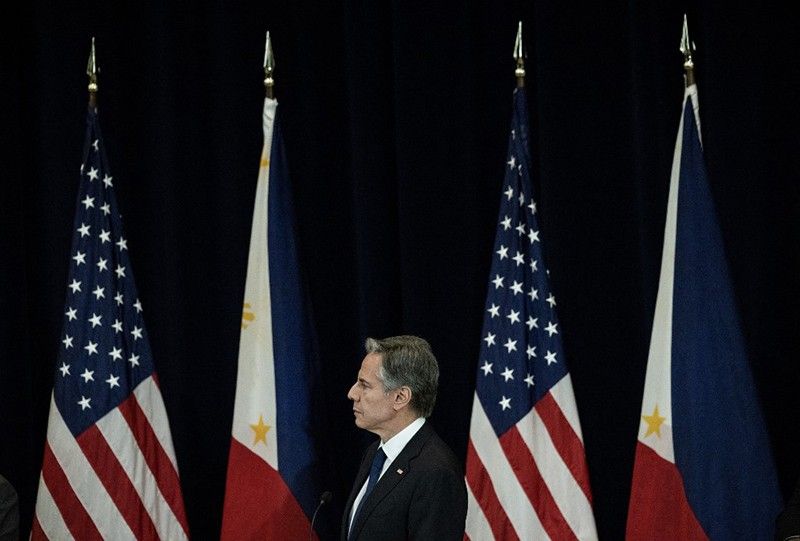Kicking off drills in the Philippines, US vows defense in South China Sea

WASHINGTON, United States — The United States on Tuesday promised to defend the Philippines in the dispute-rife South China Sea as the allies launched their largest-ever joint exercises in the face of Beijing's growing assertiveness in the region.
Nearly 18,000 troops are taking part in the annual exercises dubbed Balikatan, or "shoulder to shoulder" in Filipino, which for the first time will include a live-fire drill in the South China Sea, which Beijing claims almost entirely.
The drills follow Monday's conclusion of a three-day Chinese military exercise that simulated targeted strikes and a blockade of self-ruled, democratic Taiwan, which Beijing considers part of its territory.
In rare joint talks in Washington with their Philippine counterparts, Secretary of State Antony Blinken and Defense Secretary Lloyd Austin discussed a deal reached last week for US forces to use a growing number of bases in the Philippines, including one near Taiwan.
Blinken said the United States affirmed its "unwavering commitment to standing with the Philippines against any intimidation or coercion, including in the South China Sea."
The mutual defense treaty, signed in 1951 after the Philippines' independence from Washington, "applies to armed attacks on either of our armed forces, our aircraft or public vessels, including our Coast Guard, anywhere in the South China Sea," Austin told a joint news conference.
The United States and the Philippines plan new exercises in the South China Sea later in the year that will include other countries, Austin said.
He said the United States is allocating more than $100 million to the bases in the current fiscal year and that the United States would provide new military equipment to the Philippines including drones and air defenses.
Asked if the Philippines worried about China's reaction, acting defense chief Carlito Galvez said, "We don't expect any violent reaction considering that this exercise is intended for our collective defense."
News of the expanded base access had prompted China to accuse the United States of "endangering regional peace and stability."
"Countries in this part of the world must uphold strategic independence and firmly resist the Cold War mentality and bloc confrontation," China's ambassador to Manila, Huang Xilian, said last week.
Exercises in tense waters
Balikatan will include military helicopters landing on a Philippine island off the northern tip of the main island of Luzon, nearly 300 kilometers (180 miles) from Taiwan, and the retaking of another island by amphibious forces.
It will be the first time the exercises have been held under President Ferdinand Marcos, who has sought to strengthen ties with the United States after his predecessor Rodrigo Duterte trashed the alliance.
"In order for us to protect our sovereign territory, we really have to drill and exercise how we are going to retake an island that's been taken away from us," Philippine exercises spokesman Colonel Michael Logico told reporters after the opening ceremony at a military camp in Manila.
About 12,200 American, 5,400 Filipino and just over 100 Australian soldiers will participate in the two weeks of Balikatan exercises -- about twice as many as last year.
The Americans will also use their Patriot missiles, considered one of the best air defence systems in the world, and the HIMARS precision rocket system, which has helped Ukrainian forces fighting the Russian invaders.
The two armies originally planned to fire live rounds at sea off the northern province of Ilocos Norte, about 355 kilometers from Taiwan's south coast, but moved it farther down the South China Sea, Philippine Army Major-General Marvin Licudine said.
The original site was "not sufficiently prepared" for unloading the needed equipment, he said.
The new venue is less than 300 kilometers east of the Chinese-held Scarborough Shoal.
The exercises will enhance "tactics, techniques and procedures across a wide range of military operations," said Philippine military spokesman Colonel Medel Aguilar.
About 50 leftwing protesters staged a rally outside the opening ceremony venue, calling on the Philippine government to scrap the exercises.
- Latest
- Trending
































